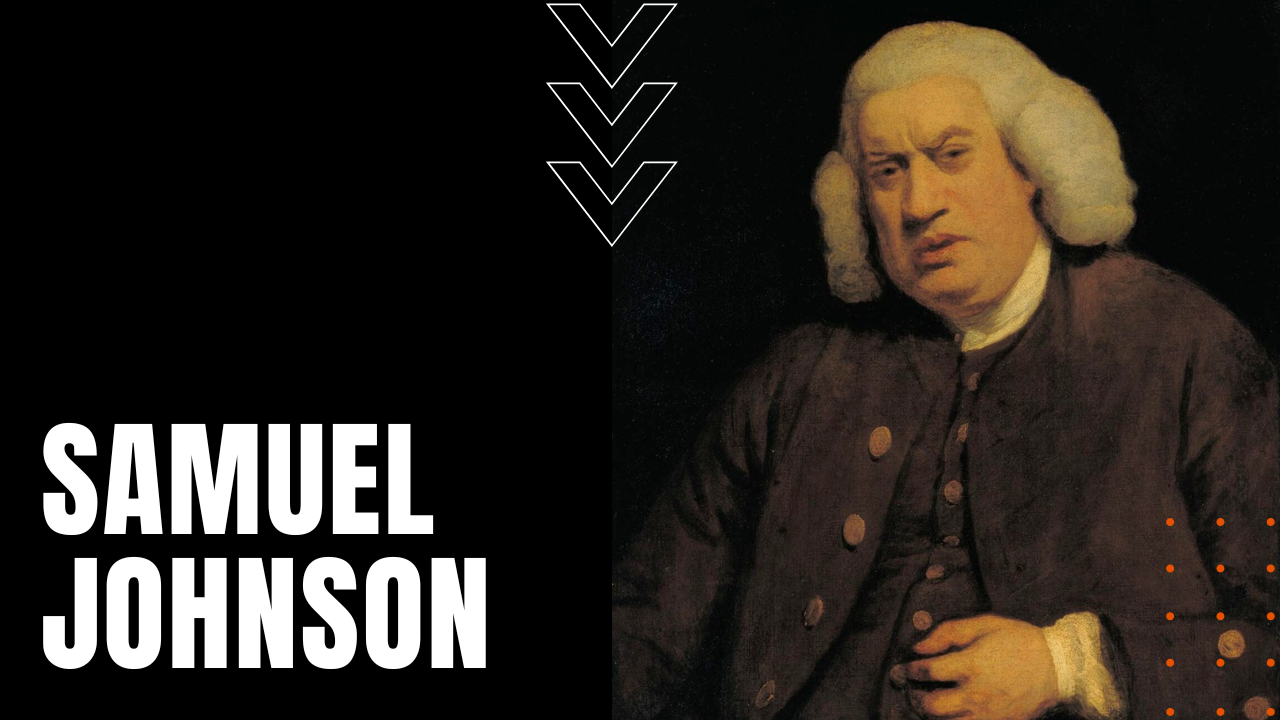Samuel Johnson

Born in 1709 Lichfield England, in a flat above his father’s book shop, Samuel Johnson was beyond sickly at birth, prompting his aunt to comment that “she would not have picked such a poor creature up in the street.” Surviving to age two, he then contracted scrofula or the “King’s Evil,” leaving him with permanent scars on his neck after the surgical removal of his infected lymph nodes. Strengthening into his teen years, Johnson attended Pembroke College Oxford for a solitary year, until he was forced to drop out due to lack of funds.
Early Works
Working as a teacher for a time, Johnson eventually found his way to London as a writer for The Gentlemen’s Magazine, at the same time penning his early works, including Life of Mr Richard Savage, his poems London and The Vanity of Human Wishes, and his less-than-successful play entitled Irene. Spending nearly a decade as a lexicographer, Johnson’s A Dictionary of the English Language published in 1755 to wide financial acclaim, inspiring one author to call Johnson’s dictionary “one of the greatest single achievements of scholarship,” while the Oxford Dictionary of National Biography posthumously called Johnson “arguably the most distinguished man of letters in English history.”
Insightful Quotes
His later works included The Plays of William Shakespeare, The History of Rasselas, Prince of Abissinia, A Journey to the Western Islands of Scotland and the Lives of the Most Eminent English Poets. Of his many notable quotes, his most repeated are “great works are performed not by strength but by perseverance,” “the true measure of a man is how he treats someone who can do him absolutely no good,” and “no man but a blockhead ever wrote except for money.” Others include “I hate mankind, for I think myself one of the best of them, and I know how bad I am,” while he further wrote that “a second marriage is the triumph of hope over experience.” He also wrote that “The chains of habit are too weak to be felt until they are too strong to be broken,” followed by “my dear friend, clear your mind of can’t,” and “no man can taste the fruits of autumn while he is delighting his scent with the flowers of spring,” making Samuel Johnson, a true and lasting icon in the history of English literature.
